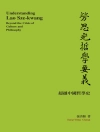This thought-provoking work presents Confucianism as a living ethical tradition with contemporary relevance. While acknowledged as one of the world’s most influential philosophies, Confucianism’s significance is too often consigned to a historical or solely East Asian context. Discussing both the strengths and weaknesses of Confucian ethics, the volume’s contributors reflect on what this tradition offers that we cannot readily learn from other systems of ethics. Developing Confucian ethical ideas within a contemporary context, this work discusses the nature of virtue, the distinction between public and private, the value of spontaneity, the place of sympathy in moral judgment, what it means to be humane, how to handle competing values, and the relationship between trust and democracy. For all those concerned with ethics, this book offers both new perspectives and resources for the ongoing consideration of how we should live.
Tabela de Conteúdo
Acknowledgments
Introduction: Why Take Confucian Ethics Seriously?
Kam-por Yu, Julia Tao, and Philip J. Ivanhoe
1. What It Means to Take Chinese Ethics Seriously
Heiner Roetz
2. The Handling of Multiple Values in Confucian Ethics
Kam-por Yu
3. Humanity or Benevolence? The Interpretation of Confucian
Ren and Its Modern Implications
Qianfan Zhang
4. East Asian Conceptions of the Public and Private Realms
Chun-chieh Huang
5. Trust Within Democracy: A Reconstructed Confucian Perspective
Julia Tao
6. A Defense of
Ren-Based Interpretation of Early Confucian Ethics
Shirong Luo
7. Is Sympathy Naive?: Dai Zhen on the Use of
Shu to Track Well-Being
Justin Tiwald
8. The Nature of the Virtues in Light of the Early Confucian Tradition
Eirik Lang Harris
9. The Values of Spontaneity
Philip J. Ivanhoe
List of Contributors
Index
Sobre o autor
Kam-por Yu is Senior Lecturer at the Hong Kong Polytechnic University.
Julia Tao is Professor in the Department of Public and Social Administration at City University of Hong Kong. She is the editor of several books, including (with Anthony B. L. Cheung, Chenyang Li, and Martin Painter)
Governance for Harmony in Asia and Beyond.
Philip J. Ivanhoe is Professor of Philosophy in the Department of Public and Social Administration at City University of Hong Kong. He is the author of several books, including
Ethics in the Confucian Tradition: The Thought of Mengzi and Wang Yangming and
Confucian Moral Self Cultivation.












